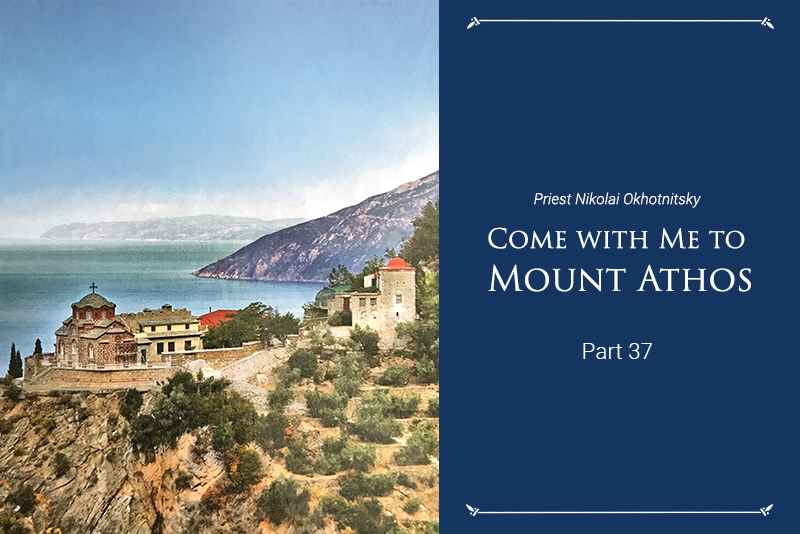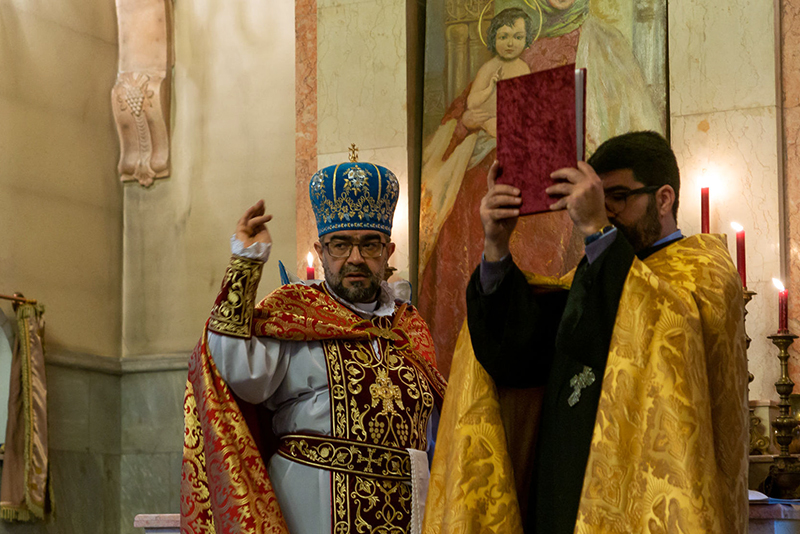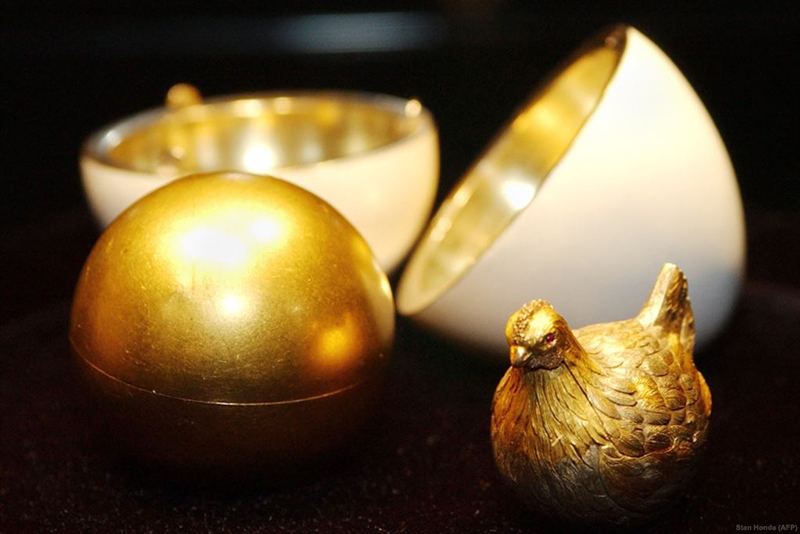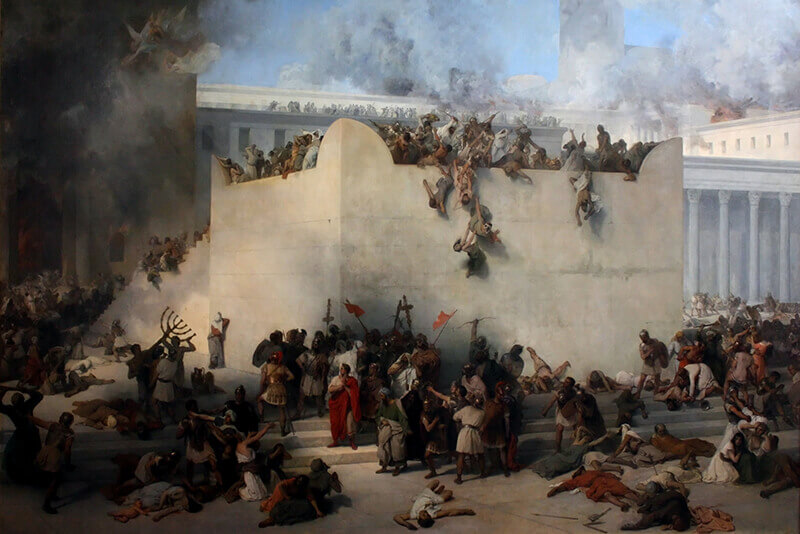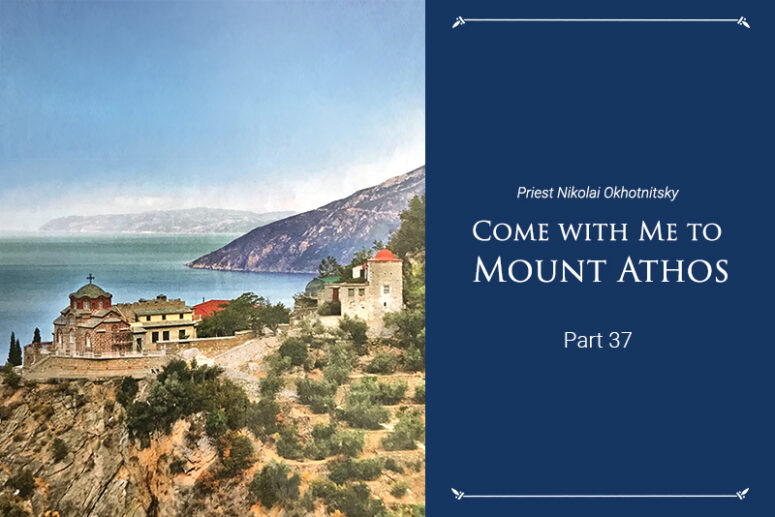
About the Will of God
The concept of God’s will is in danger of becoming a “stock phrase” in the Orthodox world. We use it as an excuse for our mistakes, a remedy for our sorrows, or an argument in our controversies. If you try to look deeper into it and ask your opponent what makes him think that he knows the Will of God, you get a dogmatically irreproachable answer that “everything is God’s will”. There are however at least two more wills to be mentioned here, namely the human and demonic ones. Distinguishing between the three appears to be a difficult task for people, considering our corrupt nature. Unfortunately most of us do not even bother with such questions. But we should. Imagine a man looking for the railway station in an unfamiliar city. He asks three different people for directions, and they point their fingers to different sides. How is this person supposed to figure out which way to go? If you listen to the wrong man, you will find yourself wandering around the city, while your train is going “bye-bye”…
At one time I was asking commemorable elders questions about the Will of God. Father Vasily Ermakov said, “Let it be the way it is. This is the road of life. If you don’t know where to go, wait until you do”. Father Mitrofan taught to be attentive, “God always indicates the open door of His Holy Will. He does this through the natural course of events and never forces a person to follow His will. However, the “master plan”, imposed on us by our own will, makes noticing this open door extremely difficult”. If you trust your spiritual father, pray, make a decision, and then come for his blessing and fulfill it.
During the first two days on Mount Athos, we understood a lot about the issues of Will and willfulness. To me it was like an army boot camp. I was constantly reminded of the “bumps and bruises” that I acquired during my military service in the Soviet Army of 1982-1984 with the incessant feeling of a newbie, physical fatigue, chronic lack of sleep, ever-empty stomach and no chances of seeing mom any time soon. Truth be told, there were also differences. The chronic lack of sleep was not as painful, since we managed to nap during the bus rides or while waiting for a ferry. In the meantime, our empty stomachs were not as impudent and modestly waited for meals, trying not to bother us too much. And finally, all who visit the Holy Mountain feel the closeness of its caring, attentive and affectionate Mother Superior, Who is always condescending to Her children.
Waves of the South Coast
Cyril came running. Hugging his “brethren”, our yesterday’s companion said goodbye and set on his way. It was time for us to go too. We went to the upper deck of the Saint Anna ferry and waved to Cyril, standing on the boat sailing to Ouranoupoli.
After running astern for some time, the ferry slowly turned around and continued breaking the waves along the rocky coast of Mount Athos. The landscape on this side of the peninsula with its steep slopes, pointing almost vertically to the sky, was very different from the northern coast. The vegetation was also much poorer. The rare bushes and small trees created green patches in places where their roots managed to catch hold on the rocky surface. From a distance, it looked as if an unknown landscape painter sparingly touched the canvas with a brush, dipped in green paint.
Rounding the cape past Dafni, we reached a point with a view of the Simonopetra Monastery. With its soaring architecture, it seemed to have grown out of the rock. On the slopes near the monastery there were lonely monastic cells. It seemed that they could only be accessed with climbing equipment, but from a closer distance one could see the rather climbable trails leading to them.
Mooring to the pier of the Simonopetra Monastery and dropping off one person, the ferry moved on. Soon there was another cape with the bay of the Gregoriou Monastery and then the monastery of St Dionysios. Like a tired, silent mule, the ferry was carrying its load from one monastery to another, while we were admiring the shore. The two extraordinarily beautiful elements of the mountain slopes and the azure blue of the sea, painted by the Creator with pastel colors on the heavenly canvas, showed His undisguised love for mankind. This masterpiece will never be sold at auction, always remaining the property of every person. Come and see.
The water seemed clean enough to drink, although very salty. The wave running in front of the ship resembled a messenger, always arriving early to set the stage for an important person. Any future event, including temptations, is pre-echoed with such a wave. A spiritually attentive person will always discern it early enough to take appropriate measures, while the enemy is still on his way to capture his mind. How can we learn to intercept the waves running in front of the enemy’s torpedo boats sneaking up on us “dead slow”? Father Vasily Ermakov once advised, “Watch the movements of your soul”. It turned out to be incredibly difficult. My inner guard kept leaving his post, like a little child who drops his toy after finding a brighter one. I had to get my share of bumps and bruises on the way to learning how to be extra careful. Perhaps there are many people who learn from the experience of others, but most, like myself, make their own mistakes and learn the hard way. Sometimes passions take root in our souls, putting on masks of good characters. We get used to them, like cellmates in prison, allowing bandits, rapists and thieves to eat, drink and sleep under the same roof with us for a long time. Forgetting what kind of entities they are and still considering them parts of ourselves, we do not hate them. In fact we get along with them until one day God confronts us with their bestial nature, for example, when our loved ones leave us, or when our children, become involved with drugs or alcohol while we are still blinded by our “undercover” passions.
Then we recover from despair (maybe by just crying in front of an icon in church), and realize that the situation is caused by the “criminals” within us, rather than by some external factors. This is when a wave of fierce hatred finally induces us to declare war on our demonic “cellmates”. With God’s help, this war will teach us to discern sin before it comes close to us. I think it must. I may be mistaken, but there is no one to consult with. All this, of course, is very figurative, but I hope that it is also understandable. Would we really fight a passion living in our soul if it did not hurt our lives?
We are all reflected in others. Our environment is our mirror. Often we try to fix our hairdo by rubbing on the glass with the reflection, not the actual hair.
These thoughts rushed through my head while I was looking into the clear waters of the Aegean Sea. The same thoughts still occupy me today.
Two small human figures appearing on a steep rise, looked like two moving black dots.
– Father Nicholas, look. There are the ascetics! – Igor pointed his finger at the two dots.
– Or pilgrims like us…
– Wow, look at how high they have climbed! – Georgievich said with admiration. – How are they not afraid?!
God only knew how many people like us were out there, healing their souls.
It was time to get ready to go ashore. The narrow windblown paths of Mount Athos determine pilgrims’ plans, leaving them but little room to manoeuvre. We were about to stop and venerate the relics at St Paul’s monastery and then begin climbing the steep slopes towards Dafni, our point of departure. On our way, there were four famous Athonite monasteries. We didn’t know where we would spend the night, and we weren’t even thinking about it. “The Mother of God will provide”. The fatigue accumulating in our aging bodies made each of us secretly desire to stay somewhere for a day and to catch our breath.
I threw the backpack on my left shoulder, crossed Valera and looked closely into his eyes. I was ready to drop my plan of sending him along an individual route if I saw indecision or unwillingness in his eyes. But I did not see anything like that; Valera hid his feelings and behaved well. I took my walking stick, straightened the monastic belt, which kept sliding below my non-ascetic waistline, and began knocking on the iron steps of the ferry, making my way towards the lower deck. Stepping off the iron tongue of the gangway, rattling against the pier, we emerged ashore, like Jonah from the whale’s belly, and immediately became part of the usual picture, a bunch of rubbernecks on the bank of the hospitable Athos peninsula. Besides ourselves, our small group consisted of about five German tourists and the future Athonite ascetic Nicholas. Two drivers in shabby jackets and worn jeans were standing on the shore next to a small truck and a modern-looking minivan.
Running our eyes over the winding mountain road leading to the monastery introduced slight sadness to our looks, but we regretted nothing. Having dreamt of Athos all my life, I took any difficulties as necessary seasoning for an exquisite dish. “Oh, it tastes a little bitter and a bit sharp, but how delicious!” Humbly taking the weight of the backpacks on our shoulders, we began moving up the hill.
– Hey brothers! – we heard from the pier.
– Go ahead and throw your things on the truck! We turned around, and loaded our backpacks. After parting with our load, our good mood turned into pure delight. Stepping lightly on the Athos pebbles, we headed towards the monastery. – Brothers! Where are you going? – The same voice reached our ears once again.
– Get on the bus, save you some time.
This was undoubtedly a reward for a humble inner state. Without waiting for a second invitation, we joyfully and quietly hopped on the bus and began admiring the mountain landscape through the large windows, clinging to the handrails and goggling our eyes like shrimp in an aquarium. Off we go!
Translated by The Catalogue of Good Deeds
Part 1
Part 2
Part 3
Part 4
Part 5
Part 6
Part 7
Part 8
Part 9
Part 10
Part 11
Part 12
Part 13
Part 14
Part 15
Part 16
Part 17
Part 18
Part 19
Part 20
Part 21
Part 22
Part 23
Part 24
Part 25
Part 26
Part 27
Part 28
Part 29
Part 30
Part 31
Part 32
Part 33
Part 34
Part 35
Part 36
Part 37
Part 38
Part 39

